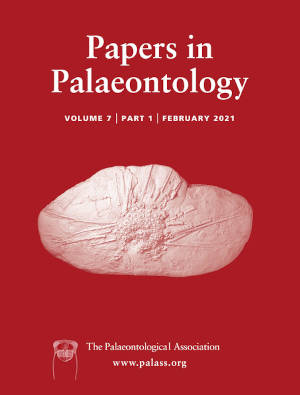Reg. Charity No. 1168330

Our understanding of the ecology and phylogenetic relationships of Pachycormiformes, a group of Mesozoic stem teleosts including the iconic Leedsichthys, has often been hindered by a lack of comprehensive morphological information. Micro‐CT scanning of an articulated, although flattened, cranium of the edentulous Martillichthys renwickae from the Middle Jurassic (Callovian) Oxford Clay of the UK reveals previously unknown internal details of the most complete suspension‐feeding pachycormiform skull known, including the palate, braincase and branchial skeleton. The latter preserves gill rakers with elongate, pointed projections similar to those of Asthenocormus, in contrast to the finer fimbriations associated with Leedsichthys. We also reinterpret some previously described features, including dermal bone patterns of the snout, skull roof and lower jaw, and the morphology of the ventral hyoid arch. These new anatomical data reinforce the phylogenetic placement of Martillichthys as part of the Jurassic clade of edentulous pachycormiforms. The elongate skull geometry of these Jurassic taxa is strikingly similar to that of Ohmdenia, the sister taxon to edentulous pachycormiforms, but contrasts sharply with the morphology of the Late Cretaceous edentulous pachycormiform Bonnerichthys, raising questions over the phylogenetic relationships among these taxa. Most significantly, Martillichthys shows specialized characters with a restricted phylogenetic distribution among suspension‐feeding pachycormiforms, including the distinctive gill rakers and a greatly extended occipital stalk. Our analysis of Martillichthys supports past interpretations of a close relationship with Asthenocormus, and provides a model for interpreting the less complete remains of other members of this enigmatic group of fishes.